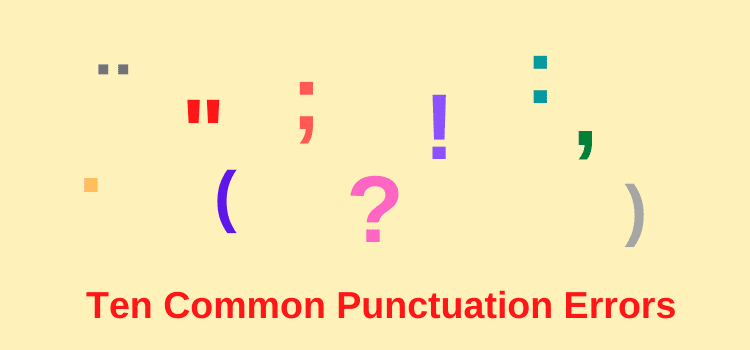
You are probably asking, what is a dangling modifier?
Of all the grammatical terms, this one is my favorite. It is just plain funny.
Dangling conjures up the vision of someone hanging from a tall building by a long rope tied around one ankle and swinging uneasily from side to side.
But in a grammatical sense, it implies that certain words or modifying phrases in a sentence are in the wrong place.
What is a modifier in grammar?
A modifier is a word or a participial phrase intended to modify a noun or a verb.
In other words, to add a description to something or someone or an action.
However, it is very common for the modifying word or phrase to be in the wrong place, which causes confusion for a reader.
There are two main types of errors that occur, causing uncertainty about what a word or phrase is supposed to modify.
The two common modifier errors
A misplaced modifier causes confusion about which words, phrases, or clauses are being modified.
But it can usually be corrected quite easily by moving a single word or phrase to its correct position in the part of the sentence.
However, a dangling modifier or participle generally requires that the sentence be rewritten to correct the grammatical error.
Here are some examples of both forms of the modifier.
Misplaced modifiers are quick to fix, but dangling modifiers take a little more effort to correct.
1. Misplaced modifiers with adjectives
A misplaced modifier is a word, phrase, or clause usually too far from the word it modifies or describes.
Because of its poor placement, the meaning of the sentence can be unclear or incorrect.
To fix a misplaced modifier, place it next to or closer to the word or words it modifies.
I was on my way to work and noticed a cream woman’s handbag in the gutter. Incorrect.
It is unclear if the handbag belongs to a cream woman or if the handbag is cream.
The modifier needs to be moved next to the word it is modifying.
I was on my way to work and noticed a woman’s cream handbag in the gutter. Correct.
My new girlfriend ordered an expensive plate of lobster at the restaurant last night. Incorrect.
The plate was not expensive. It was the lobster.
My new girlfriend ordered a plate of expensive lobster at the restaurant last night. Correct.
The old teacher’s textbook was tattered from so much use. Incorrect.
It depends if the textbook is old or the teacher.
But tattered doesn’t seem to logically refer to the teacher.
The teacher’s old textbook was tattered from so much use. Correct.
2. Misplaced modifiers with adverbs
We walked through the park and botanical garden slowly to see everything. Incorrect.
Slowly is referring to the verb walk, so the adverb needs to move closer to the verb.
We walked slowly through the park and botanical garden to see everything. Correct.
I almost spent all of my money when I was on vacation. Incorrect.
Almost is an adverb, so it should follow the verb to make sense. It should indicate that the subject nearly ran out of money.
I spent almost all of my money when I was on vacation. Correct.
He paid only to see the Eiffel Tower when he went to Paris. Incorrect.
Be careful with only as it can be an adjective or adverb. It can also change the meaning depending on the placement.
He only paid to see the Eiffel Tower when he went to Paris. Correct.
3. Examples of a dangling modifier
Watching intently, the snake finally slithered away into the long grass. Incorrect.
It is unclear who was watching the snake. This problem is often caused when starting a sentence with a gerund or participle phrase. So, there needs to be a subject in the clause.
The young man watched intently as the snake finally slithered away into the long grass. Correct.
After having finished dessert, it was time to go home. Incorrect.
Prepositional phrases and present participles usually need a subject or object to make sense.
After having finished dessert, it was time for the young couple to go home. Correct.
When a kid, my mother insisted on singing lessons. Incorrect.
It is unclear if it was the mother who wanted the kid to have singing lessons or if it was the mother who wanted singing lessons when she was a kid. You need to add a word or words to make the meaning clear.
When I was a kid, my mother insisted on my having singing lessons. Correct.
When my mother was a kid, she insisted on having singing lessons. Correct.
Scrounging in the trash can, the wad of money in the brown paper bag went unseen. Incorrect.
Because the subject of the main clause is missing, we don’t know who missed finding the money. Using the passive voice also adds to the confusion.
Scrounging in the trash can, the old hobo didn’t see the wad of money in the brown paper bag. Correct.
With a low level of enthusiasm or appreciation, the applause lasted for only a few seconds. Incorrect.
A long or short prepositional phrase requires a subject. In the example above, there is no subject in the phrase that modifies the applause in either clause.
With a low level of enthusiasm or appreciation, the applause from the audience lasted for only a few seconds. Correct.
Related reading: What’s The Difference Between Participial Phrase And Gerund?
Conclusion
It is not difficult to correct a dangling modifier.
The easiest way is to look at a sentence and make sure that the modifying word or phrase clearly describes the subject or object it should be describing.
Very often, the incorrect placement and use of modifiers will result in an incomplete comparison or even a split infinitive.
The problem is usually due to separation. Sentences with modifying errors invariably sound awkward, absurd, or confusing.
An easy rule to follow is to place adjectives before the noun they are describing. For most verbs, the adverb should be directly after the verb it is modifying.
For sentences starting with gerund, participle, or prepositional phrases, make sure you include a subject to avoid the possibility of perplexing your readers.
If you are not sure about how to identify and fix misplaced or dangling modifiers, you could use an online grammar checker to help you correct your errors.
Check carefully, and don’t let your modifiers dangle or misplace them.
Related reading: Do Usually And Normally Share The Same Meaning?
Share This Article



I’m not dyslexic, like Lindsey, but I also appreciate examples. It makes the explanation so much clearer.
As a dyslexic I find it hard to gasp explanations no matter how good they are. I need examples and that is what you have given. Even better is that you have given what is right and what is wrong. An excellent article – many thanks.